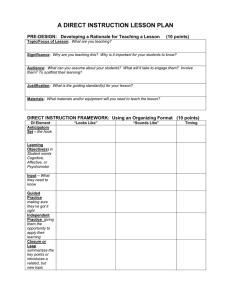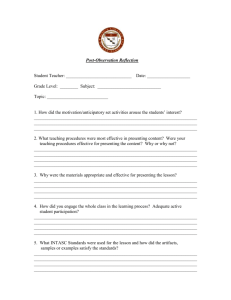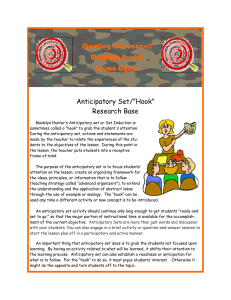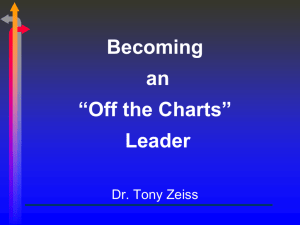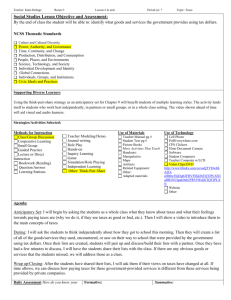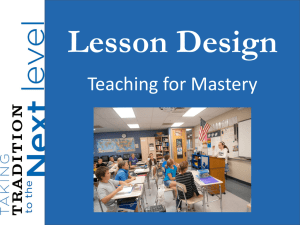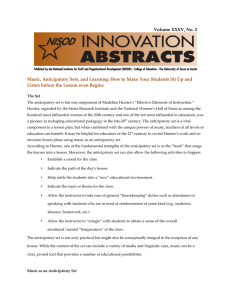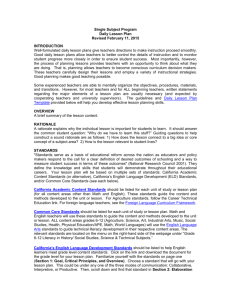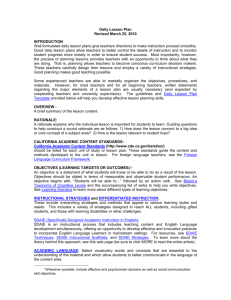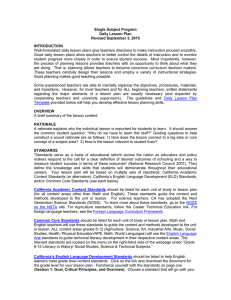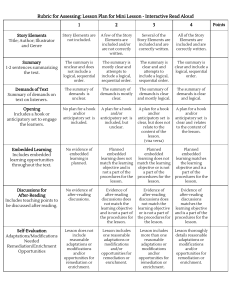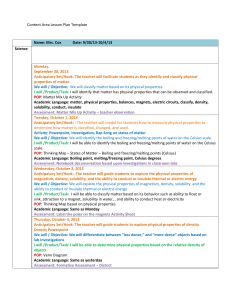Boyle Co Steps in an Ideal Lesson ppt
advertisement
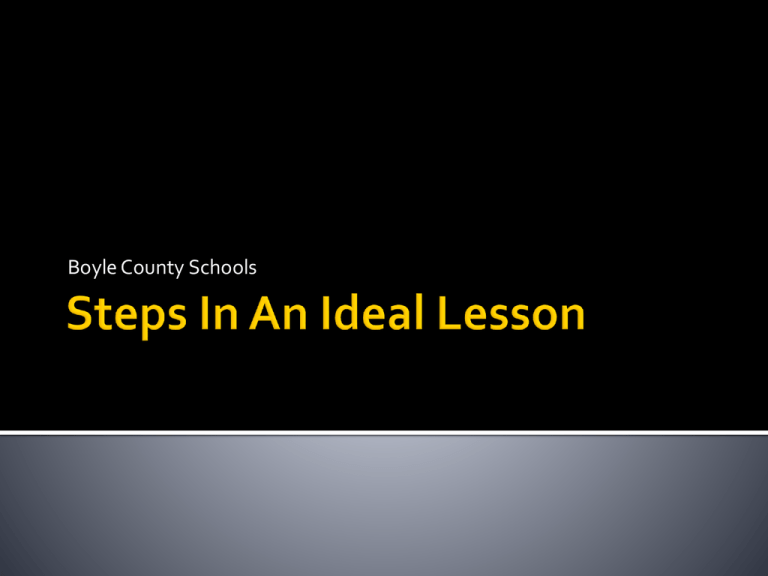
Boyle County Schools 1) 2) 3) 4) 5) 6) 7) Bellringer Daily Objective (written as a Learning Target) Anticipatory Set (“Hook”) Body of the Lesson – New Content Guided Practice – Check for Understanding Return to the Learning Target Formative Assessment 40 minute lesson 60 minute lesson 90 minute lesson 10 minutes 10 minutes 15 minutes Step 1 Flashback/Bellringer Should flash back to previously taught content (but not recent content) ▪ ▪ ▪ Writing Responding to a picture/graph/map Answering multiple choice questions Step 2 Learning Target “Today I can” or “Today we will”…(in student friendly language) Review with students prior to starting a new lesson Must be learning-based, not activity-based Will be what you assess at the end of the lesson * It is OK to place your agenda on the board as well, but this is different from the learning target Step 3 Anticipatory Set (The “Hook”) DEFINITION: A brief activity or event at the beginning of the lesson that effectively engages all students' attention and focuses their thoughts on the learning objective. What is the purpose of an Anticipatory Set? To involve and motivate all students, focus everyone's attention, create curiosity To make sure everyone's on the train, and knows where it's going, before it leaves the station Bait the hook in order to catch the fish Also needed after interruptions, to refocus attention on the learning objective How long is an Anticipatory Set? As long or short as necessary Step 3 continued The Anticipatory Set: Should be designed to have direct relevance to the daily learning target May include review of significant or related information to establish continuity with previous lessons, ties to familiar frames of reference, and/or demonstrations to ground the lesson in concrete operations Provides students with a connection to the learning that is about to occur Allows the student to know which hook on the hatrack to reach for when recall of the lesson may be needed Questions to Consider When Designing the Anticipatory Set How can I involve as many students as possible, piquing their interest for the subject matter to come? How should I inform my students about the lesson’s context and objective in kid-friendly language? What did the students need to know before they can delve into the lesson plan itself and the direct instruction? 40 minute lesson 60 minute lesson 90 minute lesson 20 minutes 40 minutes 60 minutes Step 4 The Body of the Lesson-New Content Lecture, reading, short video clip, demonstrations, etc One minute maximum per year of age and then the teacher must prepare a transition activity (see step 5) Step 5 The Body-Check for Understanding ▪ ▪ ▪ ▪ ▪ Cooperative learning structures Technology Quiz Board Work Teacher Checks, etc. After the teacher has checked for Understanding, he or she can go back to Step 4 and teach additional new content 40 minute lesson 60 minute lesson 90 minute lesson 10 minutes 10 minutes 15 minutes Step 6 Return to the Learning Target Students state in their own words what they learned today This step should not be teacher-driven, but an act of the learner Students should: Internalize the lesson Recognize what they can do or what they learned Verbalize to themselves and others to increase retention Step 7 Formative assessment Provide instructional feedback Gives the teacher information about which students are struggling (or succeeding) and with what content Exit Slip (example) 5 multiple choice questions from today's lesson congruent to today’s learning target Should be graded in front of the student in order to give instant feedback Students who score 3 or fewer correct will be remediated within 5 instructional days (with an opportunity of improving their score) and students who score 4 or more correct will be recorded in the grade book and an enrichment opportunity will be offered
